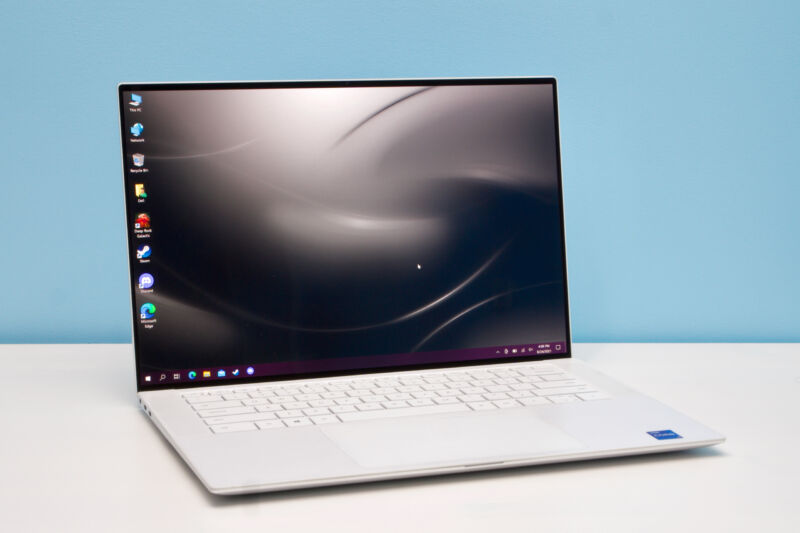
Andrew Cunningham
Earth Day is April 22nd, and its usual message – watch out for our planet – has been given extra urgency by the challenges highlighted in the latest IPCC report. This year, Ars takes a look at the technologies we normally cover, from cars to chip manufacturing, and finds out how we can increase their sustainability and minimize their climate impact.
Labeling a laptop as sustainable, environmentally friendly or “green” is optimistic at best. The seemingly endless cycle of upgrades produces a lot of waste, no matter how many green certifications a device gets. We have a long way to go again.
But while all laptops contribute to waste, some do more or less than others. Many people simply need a laptop, so it is not an option to refrain from it all. But there are some small wins to be gained if you spend some time considering the possibilities.
As we close April and end the festivities for Earth Day, let’s quickly review the basics of making sustainability a part of our laptop purchasing decisions.
Can be upgraded and repaired
The most essential things to consider when buying a laptop with these issues in mind are upgrade options and repair options. The more ways you can upgrade your device, the further you can go without buying a new machine and turning your old one into waste.
Furthermore, the easier you or a technician (either a third party or someone who works for the company that made the laptop) can repair it, the better. This is because some laptops are designed in such a way that repairing or replacing one part requires another part of the machine to be damaged, doubling the waste.
There are a handful of YouTube channels and sites like iFixit that essentially review products on this basis alone. The easier they are to repair without special tools or unnecessary waste, the higher the score they get.
When all else fails, you can go to Reddit or internet forums to ask existing owners what is and is not possible.
Responsible material sourcing
It is an unfortunate reality that any laptop will introduce harmful waste into the environment when it reaches the end of its life. But some are better at this than others, on two fronts.
First, some are made with easier recyclable materials. The components could be made with materials that already come from recycling sources, and they can in turn be recycled instead of going to landfill when you dispose of the laptop.
Second, consider where the materials come from. If they come from suppliers with bad environmental practices, you have a whole extra set of worries.
Portable manufacturers are usually quick to proudly and loudly proclaim their use of recyclable materials or their reliance on suppliers who have strong practices. You will probably see some language about this when you visit the product page for a laptop.
And again, these would mean that you have to spend for these processes. There are also some certification marks that give you a shorthand to go on, such as TCO certification. You can also look at the Electronic Product Environmental Assessment Tool (EPEAT) for the device you want to buy.
Long-term support
Laptop manufacturers vary greatly in how much long-term support they provide to customers. You want to avoid companies that do not have a good track record of providing customer, software, online or hardware support for their products over many years.

Fairphone
By avoiding those who simply ship a product and essentially forget it, the chances increase that you can hold on to that device for a longer period of time, which reduces how often you create waste. In addition, it is also good for your own bottom line and user experience.
Most companies offer details about their product support plans on their websites. Compare and contrast to ensure you get a device that will be supported for a while. Of course, it’s probably best to steer clear of a brand if you can not find these details at all.
Product reviews on technical websites also sometimes mention this aspect – including many of the reviews we publish at Ars Technica for certain product categories.
Sustainability reports
Some OEMs publish monthly, quarterly or annual sustainability reports, which are often available somewhere on their websites if you are really looking for them.
These reports are sometimes subject to external review and may in fact accurately reflect the company’s progress or lack thereof – in other words, they are not necessarily just spin. But go to your favorite search engine to see what reactions journalists and watchdogs may have had to the published report to be sure.
